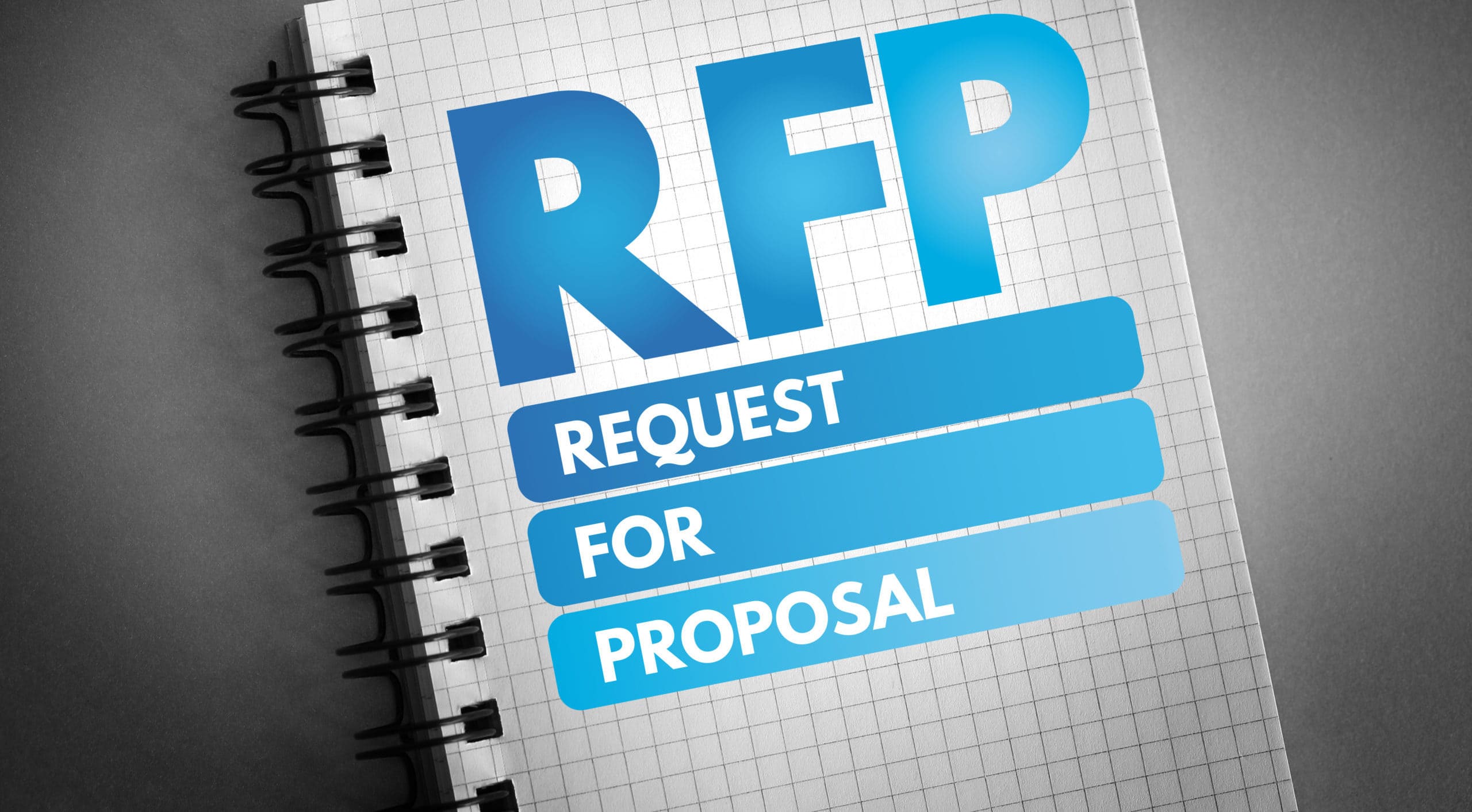A Request for Proposal or simply RFP is a special document that the government uses to solicit products and services. Unlike the Request for Quotation where a government agency knows exactly what it wants and merely asks vendors to offer the best price, the RFP is more technical. With RFP, the agency wants to hear various proposals, both in terms of pricing and the technical implementation, because the task to be solved is relatively new and/or does not yet have a proven solution.
- What does RFP mean in government procurement terms?
- What is a request for proposal RFP and what is its purpose?
- What are the 3 sections of RFP?
- What is the RFP process?
- How to write an RFP for the government
- What is a RFP writer service
- Should you hire a proposal writer or do it all by yourself
- How a good-written RFP helps you getting on a Schedule
Hence, RFP proposal writing is extremely important for winning the bid. It is not enough to just have the best offer on the market; you have to describe it as attractively as possible to convince the government agency and a GSA procurement officer that your proposal is the best solution available.
In this article we explain what an RFP is, how to write an RFP, what the government proposal writing services are, and how you can benefit from such services. We also provide some federal proposal writing tips.
What does RFP mean in government procurement terms?
Overall, a federal RFP in the public sector is not too different from Requests for Proposal in other fields and industries. The government publishes a request, and collects responses from vendors. Then, it goes through the evaluation process and picks the best offer.
On the other hand, government RFPs have some distinct features. For one, they are literally staffed with legal language and bureaucratic jargon. And you really need to float like a shark in such semantics, otherwise you risk missing out on some crucial points of the solicitation, and responding to an RFP that’s either unrealistic or non-profitable for your small business.
What is a request for proposal RFP and what is its purpose?
The purpose of this type of solicitation is to get a technical insight into a solution of the task when the federal agency does not have the expertise to publish a detailed solicitation. For example, a local government might need some geodesic services but cannot formulate all the technical requirements to the offer due to the lack of expertise. So in this case it publishes a MAS RFP and sees what other specialized companies that have expertise in the field have to offer.
In an RFP, an agency formulates its “wants” and “needs”, sets the rough timeline, and provides description of project goals and purposes.
Unlike RFQ, where price is the major (and possibly the only) important factor, RFP implies discussions with contractors on technical topics of the solicitation.
What are the 3 sections of RFP?
A typical government RFP consists of multiple sections, not just three:
- Section A – Solicitation/Contract Form (SF-33)
- Section B – Supplies and Services and Prices/Costs
- Section C – Description/Specifications/Statement of Work
- Section D – Packaging and Marking
- Section E – Inspection and Acceptance
- Section F – Deliveries or Performance
- Section G – Contract Administration Data
- Section H – Special Contract Requirements
- Section I – Contract Clauses
- Section J – List of Attachments
- Section K – Representations, Certifications, and Other Statements of Offeror’s
- Section L – Instructions, Conditions, and Notices to Offerors
- Section M – Evaluation Factors for Award
However, from all these, the most important ones that you should pay attention to when writing your proposal are Section C that describes the purpose of the RFP, Section F where you can find project goals and results as well as performance criteria, and Sections H and I, where the criteria that will be used to evaluate submitted proposals are listed.
What is the RFP process?
Overall, the RFP process consists of several steps:
- A federal agency publishes an RFP solicitation.
- GSA contractors submit their offers.
- Contracting officers evaluate proposals and technical specifications, then shortlist some of the bidders.
- Contracting officers negotiate rates, terms and conditions with the bidders.
- Finally, after vendors submit their Final Proposal Revisions, one of the bidders is awarded the contract.
How to write an RFP for the government
Strictly speaking, you don’t write an RFP; that’s the government’s job. You will be writing a proposal for an RFP. Or hire some federal government proposal writing services to do so. Whether you decide to do it yourself or use RFP writing services, the main principles are the same:
- Make sure to read the solicitation carefully. This is vital!
- Write an RFP cover letter and describe your proposal. This is what the procurement officer first sees when she opens your RFP proposal. This is your chance to present your company and your unique selling points.
- Make sure to include all the required documents (read the solicitation carefully!)
- Provide your prices with a pricing narrative to justify your rates.
Needless to say, writing a good selling proposal is extremely important. Professional government contract proposal writers recommend taking this seriously and provide as accurate and up to date information as possible.
What is a RFP writer service
Proposal writing consulting services target small businesses that simply cannot allocate time and staff for GSA management, including but not limited to writing proposals for government RFPs. Such services take away the burden of writing RFP cover letters and the proposal entirely from the vendor.
For a GSA contractor or a business that is merely going to get on GSA Schedule, it is wise to hire a government contract proposal writer to save time and effort when bidding on multiple government solicitations.
Should you hire a proposal writer or do it all by yourself
Federal proposal writers can save hours and hours of hard work for you, especially if there’s no dedicated position on your team to respond to bids and write proposals. Not only that, but also a government proposal writer can do this job faster and possibly better than a person that is non-skilled in federal proposal writing.
How a good-written RFP helps you getting on a Schedule
On your way to federal contracting success, you should leverage every possible help while getting a GSA contract. A well-written proposal catches the eye of a GSA contracting officer, explains the merits of signing a contract with your company, and gently highlights your advantages.
Should you need to further support your proposal, Price Reporter can simplify the process, while making things more simple for you.







